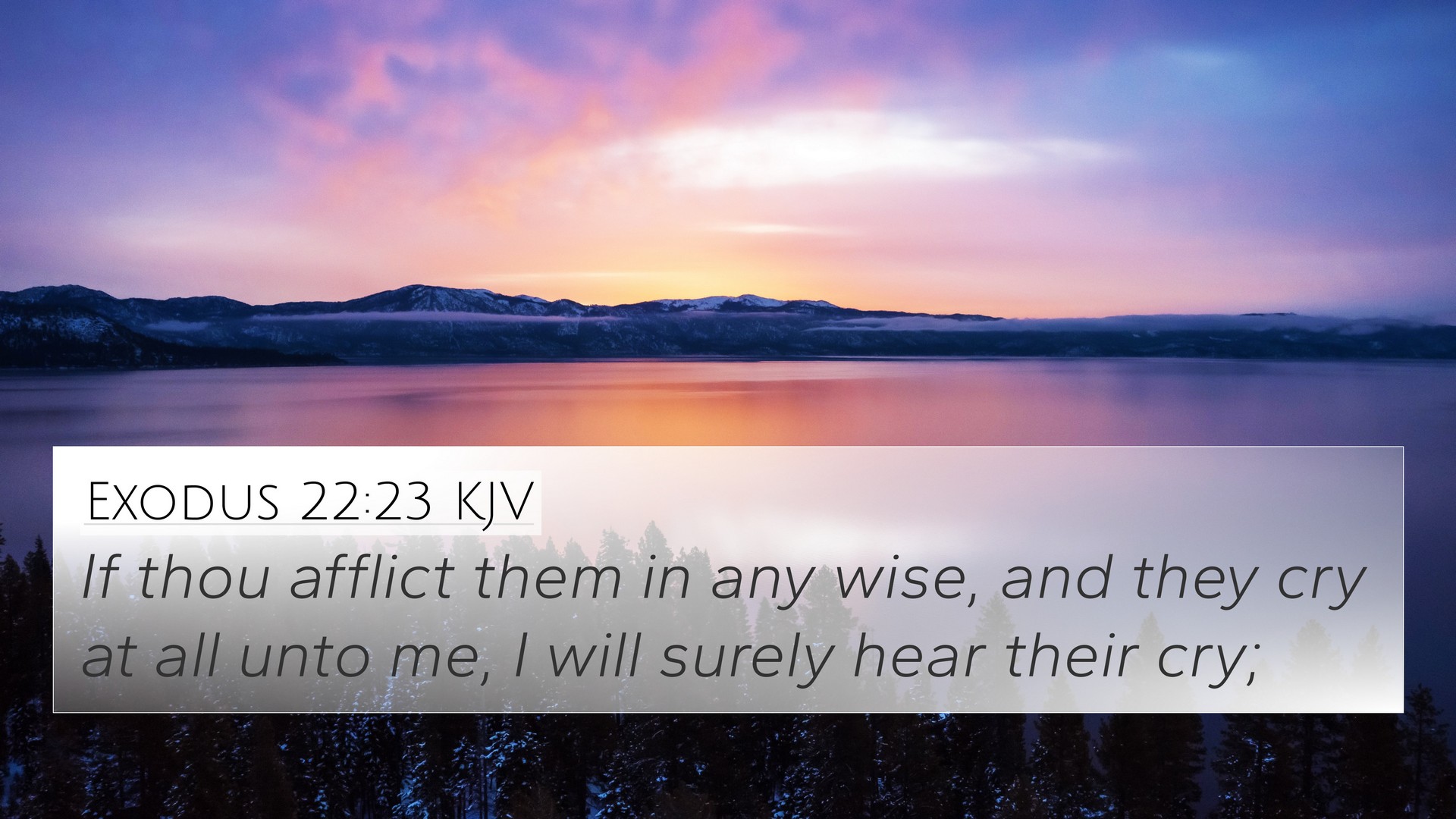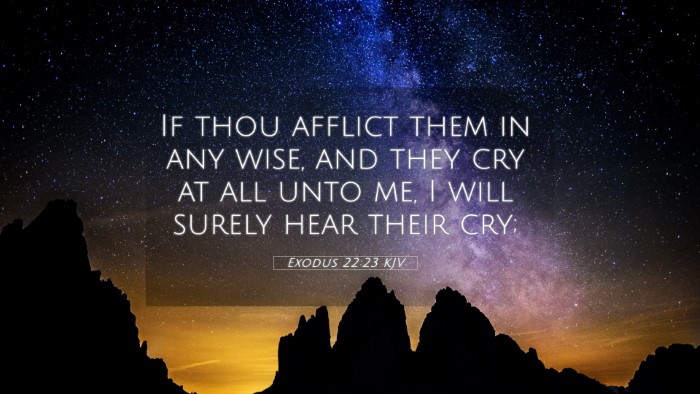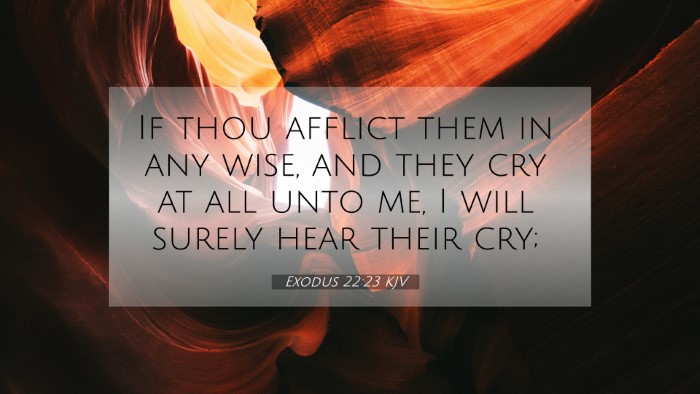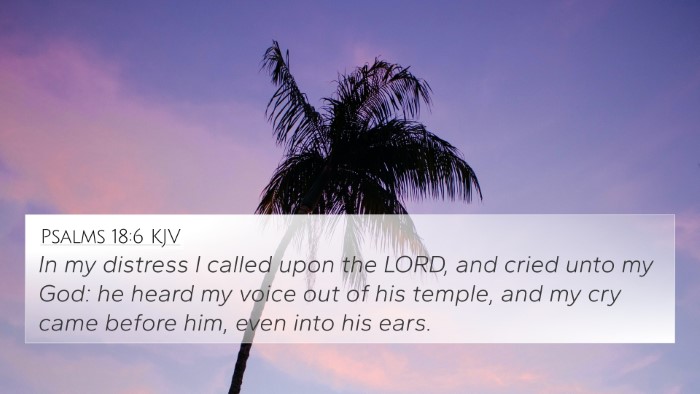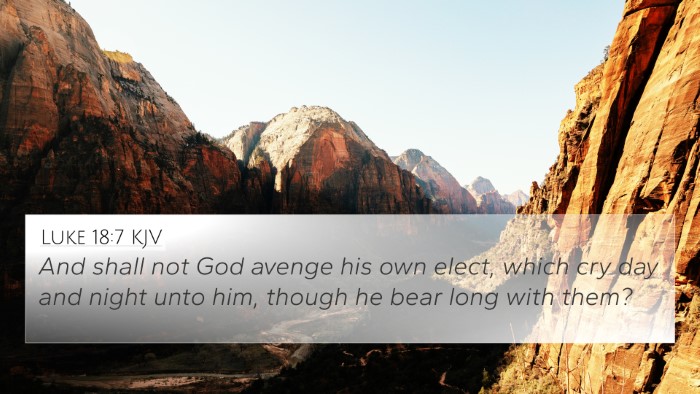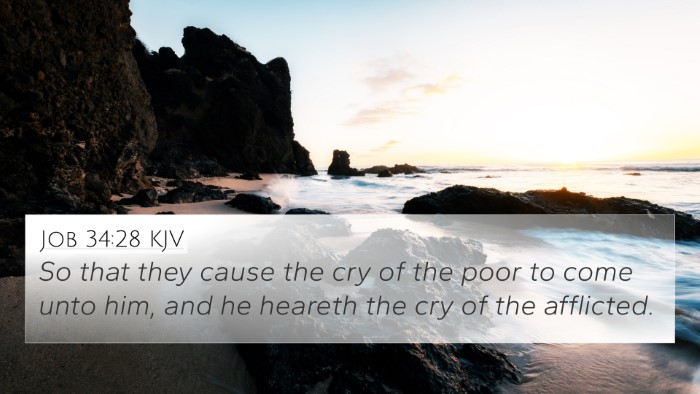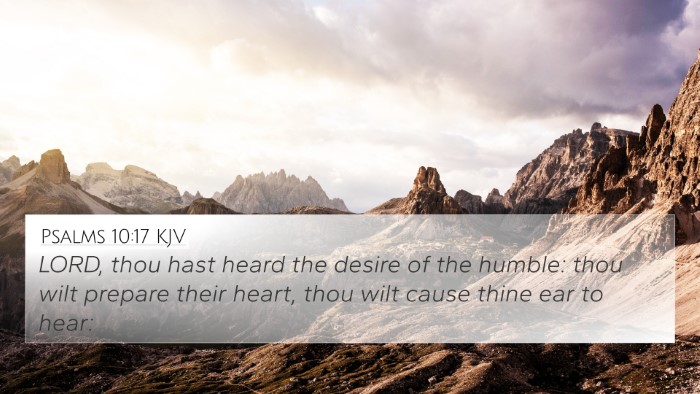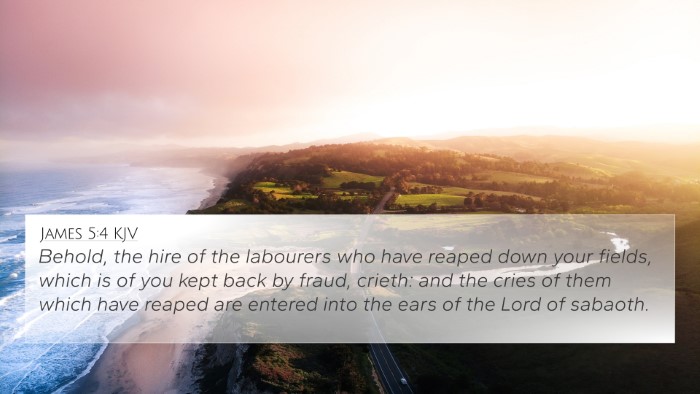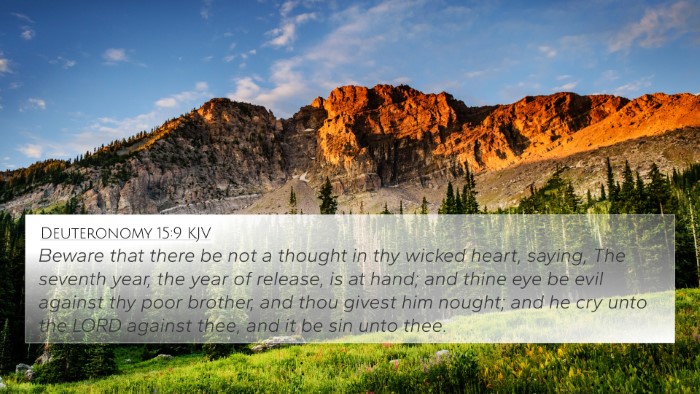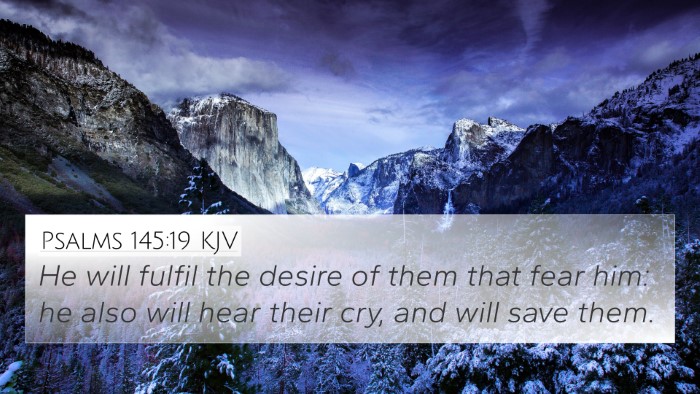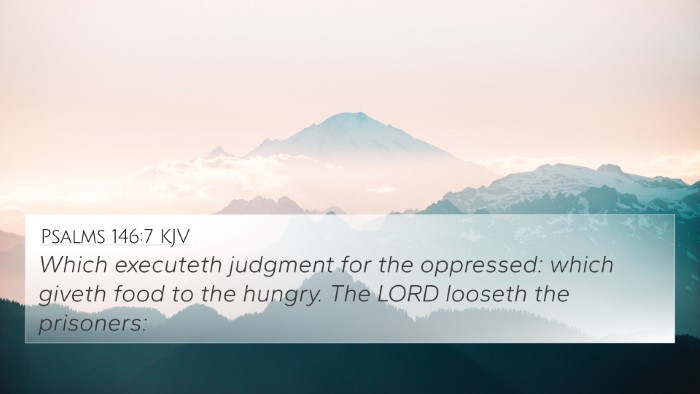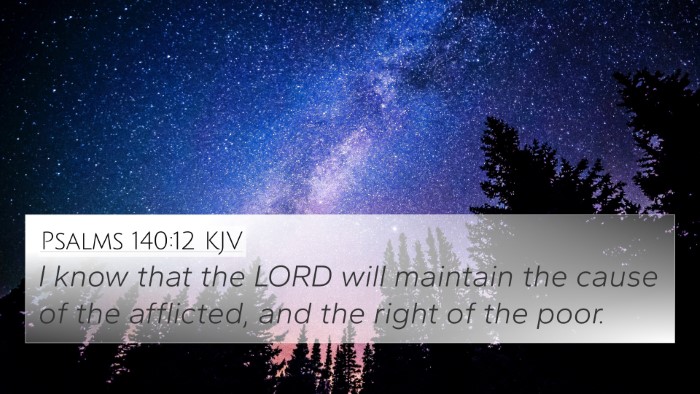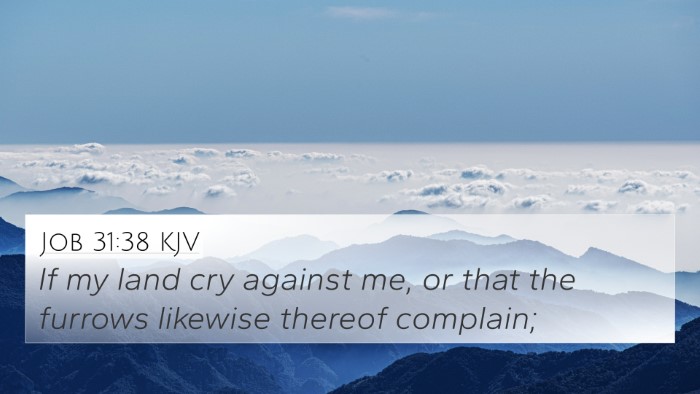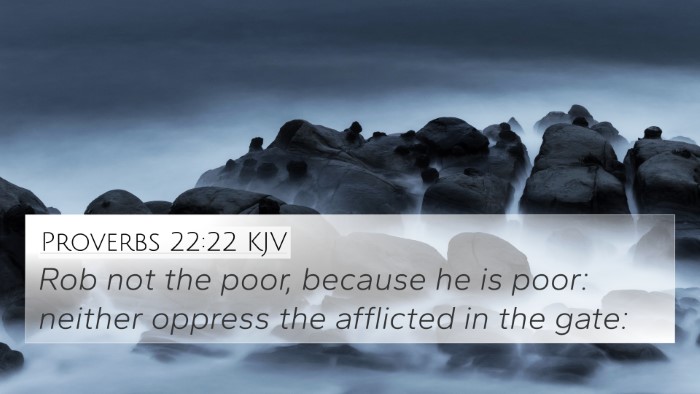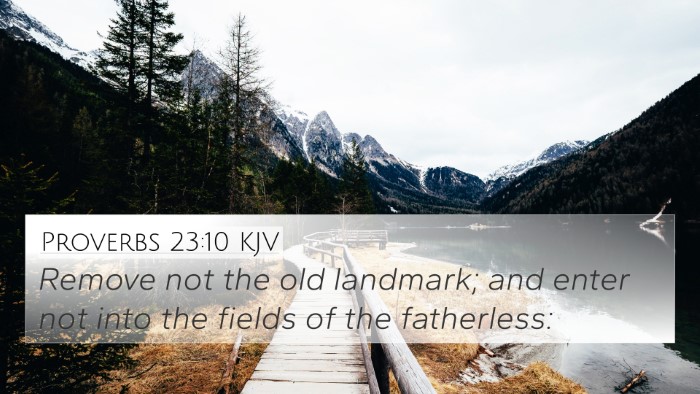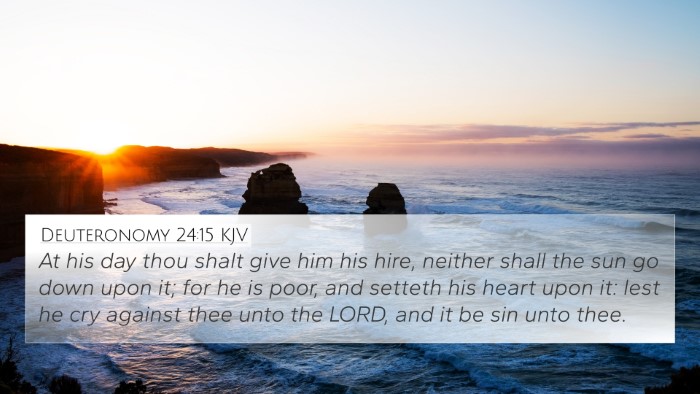Understanding Exodus 22:23
Exodus 22:23 states: "If you afflict them in any way, and they cry at all to Me, I will surely hear their cry." In this verse, God emphasizes His concern for the vulnerable and assures that He is attentive to the cries of the oppressed.
Insights from Public Domain Commentaries
Matthew Henry’s Commentary
Henry discusses that this verse underscores the principle of divine justice. God’s protection extends to those who are marginalized and oppressed. When individuals are wronged, their cries reach God’s ears, and He promises to intervene. This assurance acts as both a warning to the oppressors and a comfort to the afflicted. The verse reflects God’s nature as a righteous judge who defends the cause of the needy.
Albert Barnes’ Notes
Barnes further elaborates that the emphasis on "cry" refers to the plea for justice, which highlights the seriousness with which God takes the injustices faced by His people. He provides insights into the societal implications of these actions, signaling that justice in human interactions mirrors God’s justice. Barnes notes that the verse symbolizes God’s omnipresence and omniscience regarding human suffering.
Adam Clarke’s Commentary
Clarke emphasizes the covenantal aspect of God’s relationship with His people. He notes that God’s promise to hear their cry reflects His commitment to uphold His covenant. Clark highlights the theme of divine protection, revealing that even in times of suffering, God is a refuge for the afflicted. Furthermore, he outlines that this promise assures the afflicted of hope and divine advocacy against cruelty.
Cross-References and Thematic Connections
This verse can be linked to numerous other biblical texts that highlight similar themes of justice, divine attention to the oppressed, and God’s role as defender. Here are 10 Bible cross-references that relate to Exodus 22:23:
- Psalm 34:17-18: "The righteous cry, and the Lord hears, and delivers them out of all their troubles." This psalm echoes the promise of God’s attentiveness to the cries of the righteous.
- Luke 18:7: "And will not God bring about justice for His chosen ones, who cry out to Him day and night?" This verse draws a parallel between the persistent cries of the chosen and God’s assurance of justice.
- James 5:4: "The cries of the harvesters have reached the ears of the Lord Almighty." Here, the plight of the oppressed is acknowledged and promises divine awareness.
- Isaiah 1:17: "Learn to do right; seek justice. Defend the oppressed." This reminds followers of their duty to advocate for the vulnerable, aligning with the themes in Exodus 22.
- Proverbs 22:22-23: "Do not rob the poor because they are poor, or crush the needy in court, for the Lord will take up their case." This vinculates God’s concern for the less fortunate with judgment against oppressors.
- 2 Corinthians 1:3-4: "Praise be to the God and Father...who comforts us in all our troubles." This highlights God's ongoing commitment to comfort those who suffer.
- Exodus 3:7: "I have indeed seen the misery of my people in Egypt." This demonstrates God’s initial engagement with the suffering of His people and sets a continuous theme throughout Scripture.
- Micah 6:8: "He has shown you, O mortal, what is good. And what does the Lord require of you? To act justly..." This reflects the biblical call for justice which resonates with our verse.
- Matthew 5:4: "Blessed are those who mourn, for they will be comforted." This New Testament beatitude connects with the reassurance provided in Exodus 22:23.
- Revelation 21:4: "He will wipe every tear from their eyes." This culminates the eternal promise of comfort for the oppressed, linking the past with future hope.
Conclusion
The thematic connections found in Exodus 22:23 provide substantial material for bible verse cross-references and further exploration. By examining both Old and New Testament verses, believers find a coherent narrative of God's justice and protection for the vulnerable. Through scriptural cross-referencing, practitioners can deepen their understanding of how various Bible verses relate to each other, fostering a richer study of faith and justice.
Utilizing tools and resources for Bible cross-reference study can enhance personal devotional practices. The integration of these themes into a cohesive theological framework offers insights and encouragement, as believers learn to identify connections between scriptures and apply ancient truths to contemporary challenges.
The Importance of Cross-Referencing
Engaging in cross-referencing Bible studies cultivates a comprehensive understanding of biblical themes. Knowing how to find connections between verses helps create a robust framework for interpreting scripture. As we discover links between the Prophets and Apostolic teachings, we maximize our understanding of God’s Word.
